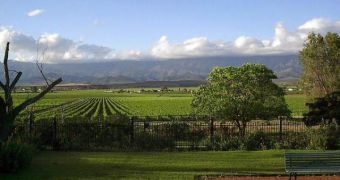The World Wildlife Fund urged African countries in the Congo basin to work together in implementing sustainable regulations for the responsible exploitation of the natural resources in the area, rather than allow for illegal deforesting operations and turn a blind eye to the development of their economies. At the sixth World Forum for Sustainable Development, held in Brazzaville, the capital of the Democratic Republic of Congo (DCR), from the 27th to the 30th of October, 2008, 100 representatives from all countries inhabiting the region met to decide future action plans for the area.
WWF Green Heart of Africa Initiative director Andre Kamdem said that “Certified, sustainable forestry yields far better returns for companies, communities and Congo basin countries than illegal logging ever will. And the yield is forever, whereas allowing one-off plunder of natural resources usually damages future returns. The world will still come for the natural resources of the Congo if they are managed for sustainability. Our challenge is to put the machinery in place to turn from plunder to preservation of resources and it is in the interests of the world to assist the nations of the green heart of Africa to do this”.
External support in Africa is still insufficient, and WWF representatives urged the international community to be more involved in solving the pressing issues that the poorest continent faces, such as poverty, lack of food and water, and wide-spread diseases. The organization stated, through the voice of its spokesman, that the lack of “real international solidarity” is the main reason Africa is still poor.
Rain forests and ecosystems are most endangered, with issues such as population growth, international resource demands and the shifting political climate predicted to take their toll by 2040, when an estimated 70 percent of the already dwindling forests will be severely and irretrievably affected by economic activities.
“Financial investments in development and infrastructure across the region should be guided by environmentally responsible policies and principles. And, crucially, government policies, incentives and capacities should seek to safeguard natural resource protection and sustainable development at all levels across this vast region,” Kamden concluded.

 14 DAY TRIAL //
14 DAY TRIAL //